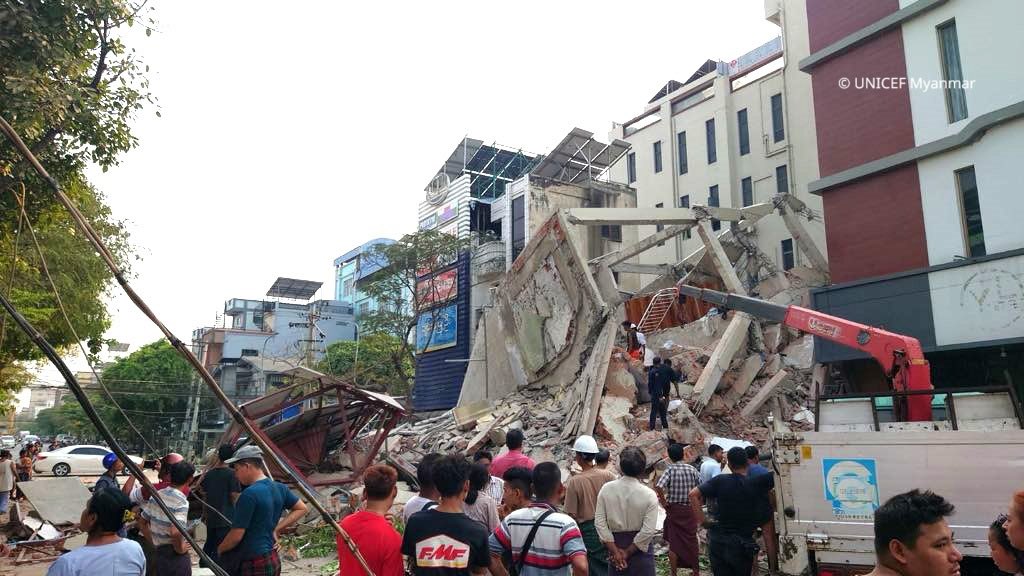UN Warns of Atrocities in Myanmar as Violence Escalates in Rakhine State
According to the report, between the coup and 20 August 2025, credible sources verified the killing of around 7,100 people, with women and children making up roughly one-third of the victims.

The United Nations has issued a stark warning about the deepening humanitarian and human rights crisis in Myanmar, particularly in Rakhine State, where intensified violence has drawn grim comparisons to the 2017 atrocities against the Rohingya population. A new report released by the UN Human Rights Office this week documents widespread killings, torture, mass displacement, and systematic attacks on civilians since the February 2021 military coup.
Mounting Civilian Casualties
According to the report, between the coup and 20 August 2025, credible sources verified the killing of around 7,100 people, with women and children making up roughly one-third of the victims. In addition, 29,560 people have been arrested on political grounds, with more than 22,000 still detained in military-controlled courts that lack fair trial guarantees.
The escalation of hostilities in Rakhine has triggered a new wave of mass displacement. Since November 2023, an estimated 150,000 Rohingya have fled to Bangladesh, adding to nearly one million already living there as refugees.
“Distressingly Similar” to 2017
UN High Commissioner for Human Rights Volker Türk said the situation was alarmingly reminiscent of the 2017 atrocities, when Myanmar’s military launched brutal operations that drove more than 700,000 Rohingya into exile.
“Civilians from both Rohingya and ethnic Rakhine communities continue to suffer indiscriminate attacks, forced recruitment, disappearances, arson, and denial of humanitarian aid,” Türk said. “It pains me deeply to see the same happening again.”
The High Commissioner reiterated his call for the UN Security Council to refer Myanmar to the International Criminal Court, citing ongoing impunity for violations of international law.
Alarming New Trends in Warfare
The report covers the 14 months leading up to 31 May 2025 and highlights several disturbing developments:
-
Aerial bombardment: Nearly half of civilian deaths (838 of 1,811) were caused by direct military airstrikes.
-
Chemical devices: There were 26 allegations of chemicals, including fertilizers, attached to explosives, used in six states and regions.
-
Paramotor attacks: Armed paramotors—low-flying tactical aircraft—were reportedly deployed to drop munitions almost exclusively on civilian areas.
One particularly devastating incident occurred on 12 May 2025, when an airstrike hit a school, killing 24 civilians, including 16 girls, six boys, and two female teachers. UN analysis of images and witness testimony confirmed that all four classrooms were destroyed, save for the roof of one.
Since 2021, the military has conducted over 640 attacks on schools, part of what observers describe as a deliberate strategy to spread fear and disrupt civilian life.
Ceasefire Breached, Violence Escalates
Even after declaring a unilateral ceasefire following the March 2025 earthquake, which killed nearly 4,000 people, the military carried out more than 550 additional attacks, killing over 480 civilians. The UN stressed that such actions show a blatant disregard for humanitarian law and the suffering of civilians.
Abuses by Anti-Military Groups
While the military bears the heaviest responsibility, the report also flagged abuses by anti-military groups, particularly the Arakan Army, which has gained control over parts of northern Rakhine. Allegations include killings, forced recruitment, looting, and property occupation, leading to hundreds of additional civilian deaths.
Humanitarian and Food Crisis
Beyond the violence, Myanmar faces a spiraling humanitarian disaster. In 2025, an estimated 15.2 million people—nearly one-third of the population—faced acute food insecurity, a sharp rise from 13.3 million in 2024. Armed conflict, economic collapse, and natural disasters have all contributed to worsening hunger.
Türk urged the international community to step up. “It is past time for Myanmar’s people finally to see meaningful action,” he said. “They need humanitarian aid, accountability for violations, and an end to the violence that has plagued them for decades.”
The Call for Global Action
The UN report underscores the urgent need for:
-
Humanitarian funding to deliver aid to populations long denied assistance by the military.
-
Accountability mechanisms, including possible referral to the International Criminal Court.
-
International pressure to compel all parties, including armed groups, to comply with humanitarian law and protect civilians.
For many in Myanmar, however, the warnings feel painfully familiar. Eight years after the Rohingya crisis shocked the world, history appears to be repeating itself, with civilians once again bearing the brunt of a conflict marked by impunity and brutality.
ALSO READ
Devastating 6.2 Magnitude Earthquake Strikes Afghanistan: Urgent Humanitarian Crisis Unfolds
Tragedy in Darfur: Landslide Worsens Sudan's Humanitarian Crisis
Devastating Landslide in Sudan: A Humanitarian Crisis in Darfur
Punjab's Devastating Deluge: A Humanitarian Crisis Unfolds
Devastating Earthquake Strikes Eastern Afghanistan: A Humanitarian Crisis Unfolds










